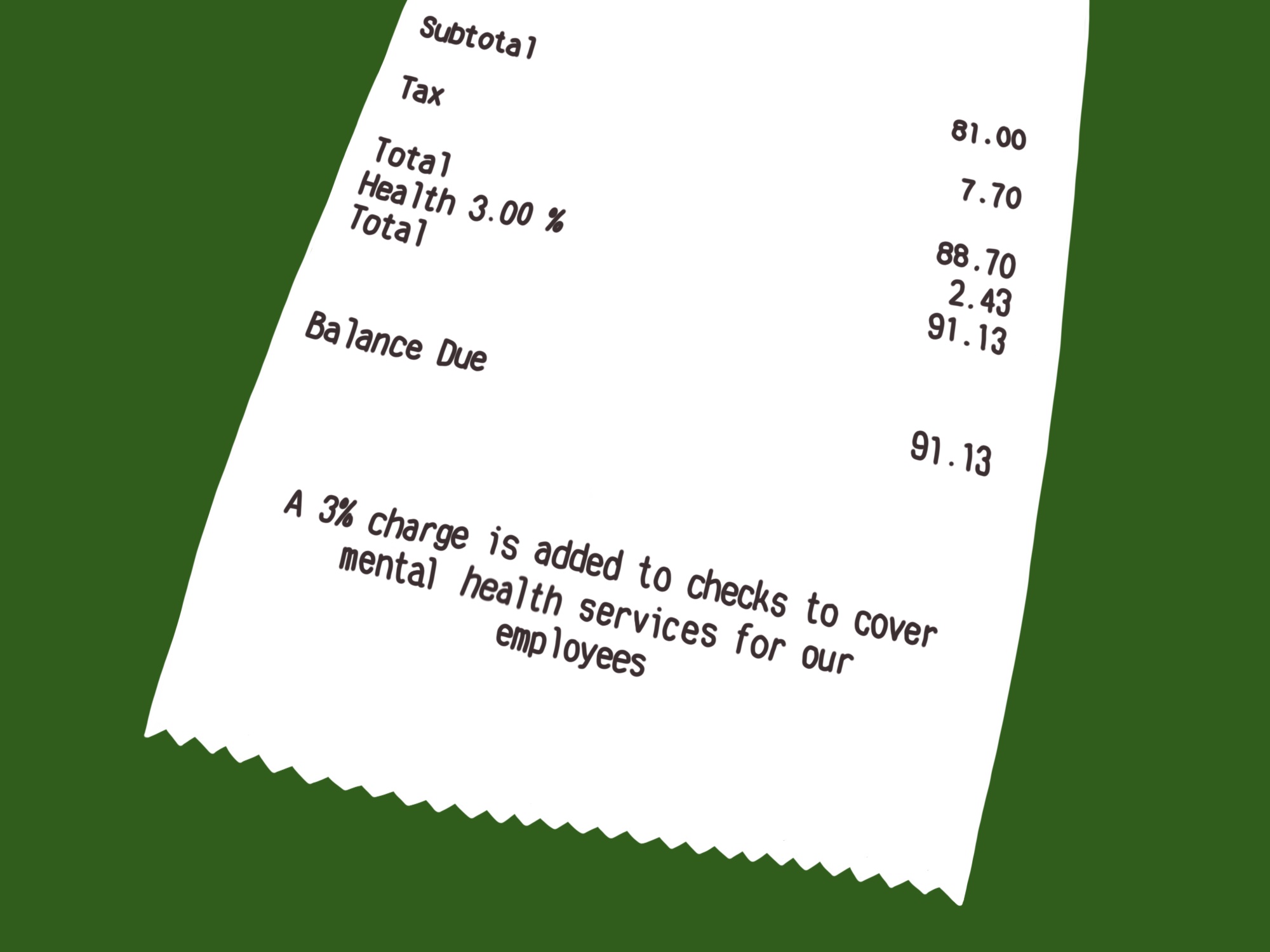Nowadays, it seems like an all too common occurrence to see charges compound on the bottom of your restaurant bill. What once was a simple tax and tip has now become service charges, allotted for anything from extra services to COVID-19 surcharges to now, health insurance charges.
Supply chain issues prompted by the pandemic led to an increase in input costs for restaurants, part of a larger domino effect on management and now, consumers.

As consumers, we must question, are these practices truly helping society? Are the right people bearing the cost?
The first time I questioned these service charges was at one of my favorite restaurants, Founding Farmers, located just outside of Philadelphia. Their introduction of a 5% “wellness charge” is now under scrutiny by regular consumers. Owners of the restaurant sought to explain their stance and reasoning in a blog post. This charge was to be allocated and used specifically for “paid sick leave for employees,” “on-site flu clinics,” “access to affordable health insurance,” “mental health support” and more.
Much of the frustration can be attributed to the opt-in versus opt-out system. Rather than having the choice to opt-in for this fee, patrons must notice and alert their waitstaff to remove it.
Restaurants are preying on consumers’ lack of attentiveness to the small details and fine print. For decades, terms and conditions and other fine-print documents have been lightly scanned over, and now, this lack of attention to detail can prove costly.
The real problem rests in the reliance that workers in the food industry have on these increasing service surcharges, revealing a more complex pattern in the history of restaurant management. With minimum wages across the country being as low as $7.25 in Pennsylvania, to be able to meet the cost of living, employers promise their employees an additional amount in tips, and now, service charges.
The service charges, while advertised as benefiting the employees, are collected by the employer, as “employees have no legal right to that money.” Again, the discretion of the employers comes into play. Will that money be used for employee mental health or is it really being allotted for keeping the lights on?
In a society that prioritizes mental health, and especially in a customer service industry, corporations must take responsibility for the wellbeing of their workers. As opposed to tacking on an additional charge, restaurants must allot more money for salaries and build health and wellbeing into their company model.
Why are consumers responsible for paying these charges? And why is there such a great reliance on tips as opposed to restructuring the system so that employers bear the cost?
The food industry has been dealing with mental health and healthcare issues for many years, yet in a post-pandemic age where service charges are becoming commonplace, restaurants have hopped on the bandwagon. Accruing more money requires an investment in mental health and a close look at how restaurant management has overlooked these issues for so long.
When attending a restaurant, the wellbeing of the servers should not rest in the hands of the customers. “Supply chain issues” can only be used as an excuse for so long.
























































































































